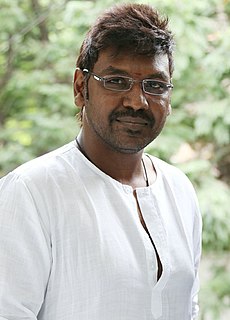A Quote by Saul Bass
If the titles are treated in a straightforward way, nobody is really interested. The theory is that in those two or three minutes, you can set the tone for the films, so that when the story begins the audience hits the ground running.
Related Quotes
Day one through three of the radio tour, I actually went by Camaron Ochs. I went to my first set of radio remotes, and everybody was just like 'What's your last name?' It's not easy to pronounce. The first two minutes I got with people, that's what they wanted to talk about, and sometimes those two minutes is all you get.
I've found great virtue in two-thirds of the way into the message; right before I'm really want to nail home a point, pausing to tell a joke or to tell a light-hearted story, because I know my audience has been working with me now for 20 or 25 minutes. And if I can get them to laugh, get oxygen into their system, it wakes up those who might be sleeping, so there's something about using a story to draw people back in right before you drive home your final point. In that case I think it's real legitimate just to use a story for story's sake.
My theory for nonfiction is that nobody can be free of some kind of conceptions about whatever story they're writing. But if you can find a way to build those into the story, then the story becomes a process of deconstructing and heightening and sometimes changing those notions and that makes dramatic tension. The initial statement of your position, and then letting reality act on you to change it, is pretty good storytelling.
It was really executed well, from the art direction to the wardrobe to everyone else. And I have to say, two really exceptional directors who did three each. Roxann [Dawson] did the first three and Jeremy [Webb] did the second three. And I think they really were very meticulous in getting the right tone because it is both. It isn't dour and it isn't grim, but it's not a romp either. It's truthful and it has room for both of those things.
Everybody knows that really intimate conversation is only possible between two or three. As soon as there are six or seven, collective language begins to dominate. That is why it is a complete misinterpretation to apply to the Church the words 'Wheresoever two or three are gathered together in my name, there am I in the midst of them.' Christ did not say two hundred, or fifty, or ten. He said two or three.
Acting is a bit like being an athlete. You spend all your time getting ready to do something for two minutes. All the things that made my career in the movies happen took two or three minutes, which is the time that it takes for a 'take'. In that time, something happens. That's what people know you for, just like someone running the hundred metres.
Never invite to dinner: those who won't decide until the last minute; those who come more than half an hour late; those who want to bring along two or three friends; drunks; monologists; those who stay until three o'clock in the morning; those who think that conversation means having an argument; those who take a high moral tone; those who are stupid, ugly, or dull. Enforcement of these rules will enable one to eat alone every night in comfort.







































